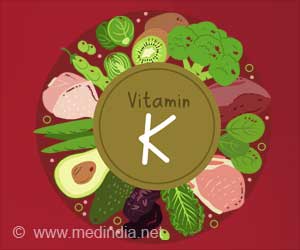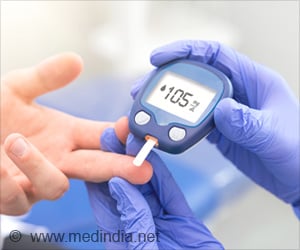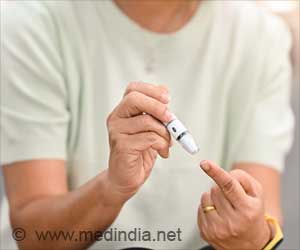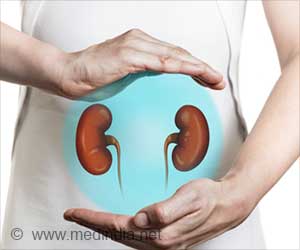- Insulin is a life-saving drug for people with diabetes but the main drawback is that it can lead to a dramatic fall in blood sugar levels
- To overcome this, scientists have developed a plant-based oral insulin delivery that can stabilize blood sugar in 15 minutes
- The plant-based insulin is stable and eliminates the need for expensive storage, paving the way for future treatments
Plant-Based Insulin Can Overcome the Issues with Injected Insulin
According to recent clinical trials, insulin pens can induce insulin to enter the bloodstream so quickly that hypoglycemia, or blood sugar levels that fall below the healthy range, can occur. Automated insulin pumps can supply accurate insulin and reduce this danger, but they are expensive and only available to a limited percentage of diabetic patients worldwide.Now, a plant-based, oral delivery of proinsulin could address these drawbacks, according to a new study published in the journal Biomaterials, led by Henry Daniell of Penn’s School of Dental Medicine (1✔ ✔Trusted Source
Affordable oral proinsulin bioencapsulated in plant cells regulates blood sugar levels similar to natural insulin
Go to source).
Although clinical insulin has been used for decades, it lacks one of the three peptides found in natural insulin. The Daniell lab developed an oral plant-based insulin that comprises all three peptides.
The strength of plant cell walls protects insulin from stomach acids and enzymes before it is broken down by gut microorganisms. The released insulin is then transported to the liver via the gut-liver axis.
Fighting Hypoglycemia with Plant-Based Insulin
Daniell and his colleagues discovered that their plant-based insulin-regulated blood sugar after 15 minutes of consumption, just as naturally secreted insulin. In contrast, animals given standard insulin injections had rapidly lowered blood glucose levels, resulting in temporary hypoglycemia.“The risk of hypoglycemia is one of the biggest disadvantages of the current delivery system and can even result in a coma. Our insulin, given orally, has all three proteins and is delivered right to the liver. It works just like natural insulin, which minimizes the risk of hypoglycemia,” Daniell says.
Daniell has long been interested in the applications of plant-grown proteins. In a 2015 study, he led a team of researchers who demonstrated for the first time the commercial potential of creating a low-cost medication manufactured from lettuce plants. Researchers employed freeze-dried lettuce leaves to create an effective medication for hemophilia patients in that publication (2✔ ✔Trusted Source
Low cost industrial production of coagulation factor IX bioencapsulated in lettuce cells for oral tolerance induction in hemophilia B
Go to source).
Daniell has also worked on plant-based pharmaceuticals to treat pulmonary arterial hypertension, Alzheimer's disease, polio, and dental plaque, as well as a plant-based gum that lowers COVID-19 viral load in saliva (3✔ ✔Trusted Source
Debulking different Corona (SARS-CoV-2 delta, omicron, OC43) and Influenza (H1N1, H3N2) virus strains by plant viral trap proteins in chewing gums to decrease infection and transmission
Go to source).
Tha Plant Part of Plant-Based Insulin is Lettuce
Scientists discovered human insulin genes and then used a "gene gun" to blast the genes through the tough plant cell walls. Following that, the insulin genes are integrated into the plant's DNA, in this example, the lettuce genome.The resulting seeds permanently retained insulin genes, and subsequently grown lettuce was freeze-dried, ground, and prepared for oral delivery following FDA regulatory guidelines.
Plant-Based Insulin is More Accessible and Affordable
This method is substantially different from the usual method of making insulin, which involves cultivating the hormone in bacteria or yeast cells, a costly procedure that necessitates purification and a low temperature for shipping and storage.Daniell's manufacturing approach avoids the need for costly, complex laboratory equipment and produces a product that is shelf stable at room temperature.
Daniell says, “We’ve seen news stories about vaccine doses being destroyed because some countries don't have the resources for cold storage throughout the process. It is an enormous cost. This kind of post-production cost is eliminated using our methods because we have shown repeatedly that the product is shelf-stable.”
Daniell intends to test plant-based insulin on dogs and humans.
“A lot of dogs have diabetes, and the owners have to be home to give insulin three times a day,” he says. “We’ve done canine studies in the past in dogs with hemophilia or heart disease, and we know how to mix the plant powder in their food and add some bacon flavor. They love it.”
Plant-based drug delivery could significantly modify diabetes and other illness treatment.
“With this delivery system, we change the whole paradigm, not only for insulin,” Daniell says. “I grew up in a developing country and saw people die because they couldn’t afford drugs or vaccines. For me, affordability and global access to health care are the foundation of my work. And in this case, we are making insulin more affordable while significantly improving it. Patients can get a superior drug at a lower cost.”
References:
- Affordable oral proinsulin bioencapsulated in plant cells regulates blood sugar levels similar to natural insulin - (https://pubmed.ncbi.nlm.nih.gov/37148757/)
- Low cost industrial production of coagulation factor IX bioencapsulated in lettuce cells for oral tolerance induction in hemophilia B - (https://pubmed.ncbi.nlm.nih.gov/26302233/)
- Debulking different Corona (SARS-CoV-2 delta, omicron, OC43) and Influenza (H1N1, H3N2) virus strains by plant viral trap proteins in chewing gums to decrease infection and transmission - (https://www.ncbi.nlm.nih.gov/pmc/articles/PMC9290430/)
Source-Medindia










